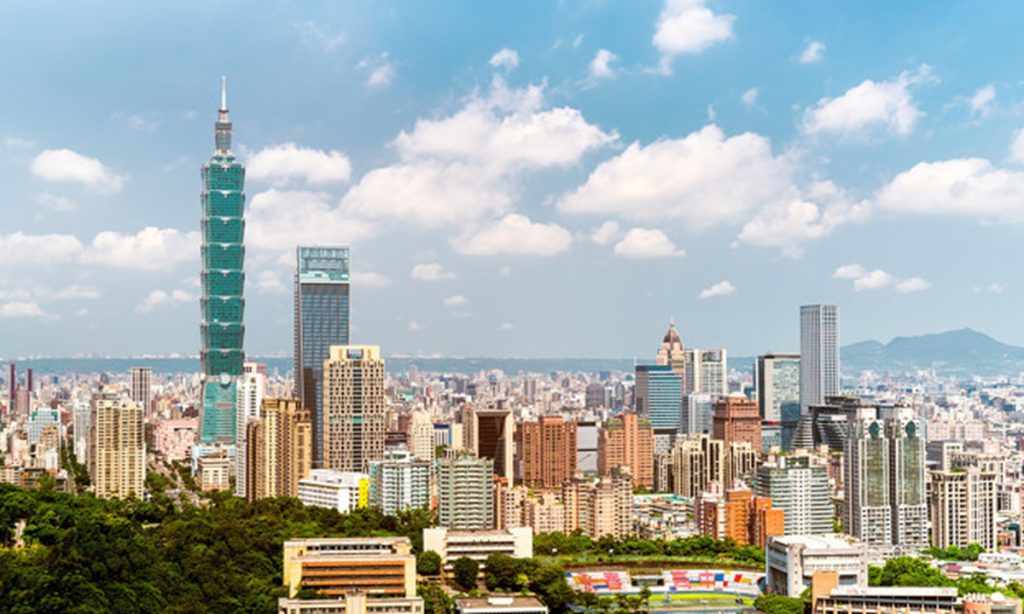AIT chair's visit to Taiwan set to tighten US control over DPP authorities

In the latest move by Washington in its strategy of "using Taiwan to contain the Chinese mainland," Laura Rosenberger, chair of the American Institute in Taiwan (AIT) met with Taiwan regional leader Tsai Ing-wen and vice leader Lai Ching-te during a week-long visit to the island.
As Lai is set to assume office as the next regional leader in the island in May, the ongoing trip, which is Rosenberger's fifth visit to the region since becoming AIT chair in March 2023, is expected to set some ground rules with the new leader and tighten Washington's control over the Democratic Progressive Party (DPP) during the transition of power. Maintaining the status quo in the Taiwan Straits will be most beneficial for American interests, according to mainland analysts.
Taiwan's local media reported that Lai met with Rosenberger on Monday and invited her to attend the inauguration ceremony on May 20. Rosenberger expressed her hope that Lai will continue to work to maintain the status quo across the Straits, according to Taiwan based-media.
Also, Rosenberger claimed that the US' commitment to the island is rock-solid, principled, and bipartisan.
During talks with Tsai and Lai, the American politician noted that it is hoped that Taiwan authorities can maintain sufficient self-defense capability.
Chinese analysts pointed out that for the US, while it tolerates some "Taiwan independence" forces in the island within certain limits, it does not want Taiwan separatists to seriously provoke the mainland, as that would jeopardize American interests.
Recently, the US has been promoting the idea of "a mainland attack on Taiwan," escalating tensions across the Straits. This theme was continued in Rosenberger's emphasis on Taiwan's efforts to enhance its defense resilience, analysts said.
It shows the US' desire for the island to purchase weapons, equipment, and technology, through which the US can not only make money but also promote its strategy of "using Taiwan to counter the Chinese mainland," Wang Jianmin, a senior cross-Straits expert at Minnan Normal University in Fujian, told the Global Times on Monday.
Wang said that the purpose of Rosenberger's Taiwan trip is obvious as Washington aims to tighten its control over Taiwan, while building influence over Taiwan's political landscape.
Following the recent regional election, the opposition Chinese Kuomintang (KMT) party has once again become the largest party in in the island's "legislature," according to media reports.
However, although Washington stressed its commitment to the island is rock-solid, a stalled US bill on military aid to Ukraine has raised concerns among DPP authorities. Chinese mainland analysts revealed that DPP authorities are worried about potentially being "abandoned" by the US in the future.
Under the guise of supporting Taiwan's "democracy," the US is actually wary of potential major incidents under Lai, and hopes to ensure that Taiwan does not stray beyond the boundaries set by the US or create further serious trouble in the Straits, Wang said.
In the event of a major crisis or conflict that is not in the interests of the US, maintaining the status quo across the Straits would be most beneficial to American interests, Wang explained.
The timing of Rosenberger's Taiwan visit coincided with former Taiwan regional leader Ma Ying-jeou's visit to the Chinese mainland but the two trips are expected to have the opposite effect, analysts noted.
Ma on Monday departed with a student delegation on an 11-day trip to the mainland, which he said will be used to deliver a message of friendship and peace, Taiwan's local media reported.
Ma's visit to the mainland is expected to help improve relations across the Straits, which is welcomed by people on both sides. Conversely, American politicians' visits to Taiwan violate the one-China principle, disrupt cross-Straits exchanges, hinder peaceful development of cross-Straits relations, and exacerbate tensions in the Straits, according to Wang.
The expert warned that it is likely that the frequency of mutual visits between US politicians and those from Taiwan will increase.
The trend toward closer and stronger illegal relations between the US and the island is unlikely to change in the short term, with cooperation in economy, technology, and security and military fields likely to increase, posing one of the biggest risks for the future of the Taiwan Straits, Wang said.